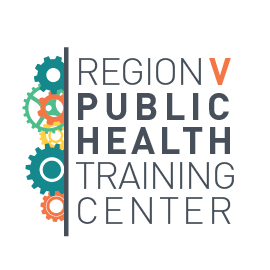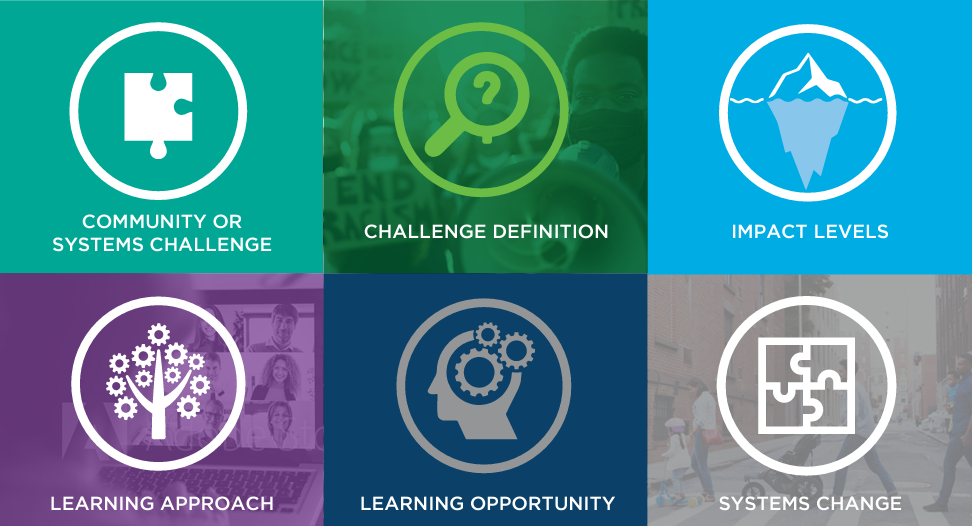By Christina R. Welter, DrPH, MPH, University of Illinois at Chicago Policy, Practice, and Prevention Research Center
Most population health challenges are rooted in complex community issues that cannot be solved with simple, single solutions or by any one person. These challenges often require systems change. Systems change is a collective, relationship-based process that involves diverse groups of people looking at the root causes of complex challenges from different perspectives to identify small openings and connections for leveraging greater change. The process of systems change also requires us to learn together, support shifts in our thinking through engaging in and encouraging vulnerable conversations, and consider problem-solving that goes beyond short-term solutions toward sustainable approaches.
Many public health workforce reports acknowledge the need for our practitioners to gain new and different skills to address these complex challenges. But despite this, there are no known frameworks in the US for designing and leading collective learning processes to respond to complex community challenges by facilitating systems change. Most of today’s workforce development models and training approaches focus on building individual competency or skills.
To address this opportunity, the HRSA-funded Regional Public Health Training Centers (PHTCs) and the University of Illinois at Chicago Policy, Practice, and Prevention Research Center (P3RC) released a new resource in December 2020, titled Creating a Learning Agenda for Systems Change: A Toolkit for Building an Adaptive Public Health Workforce (the Toolkit). The Toolkit provides an evidence-informed, innovative, action-oriented process for public health organizations, their partners, and communities to use transformative learning as a driver for systems change.
The Learning Agenda Toolkit (available for free from www.publichealthlearningagenda.org) includes a conceptual Learning Framework and planning tools for teams of public health professionals and their community partners to align learning with adaptive community challenges. Together, these teams work through an action-oriented process to use transformative and collective learning as a driver for systems change.
The Learning Agenda Toolkit was piloted in Summer 2021 with 24 diverse teams from health departments, academic institutions, and other public health organizations. Our article highlights key findings from the pilot evaluation and recommendations for revision toward a Learning Agenda 2.0. Here is a snapshot of our findings.
- Pilot Evaluation findings suggest the majority of pilot testers found the Learning Agenda Toolkit provided an intentional process that fostered discussions on root causes and used a step-by-step process that produced a concrete product for learning. Further, the Learning Agenda Toolkit fostered team togetherness and provided a unique systems change focus.
- Opportunities for improvement of the Learning Agenda Toolkit were several:
- Participants noted that the Learning Agenda Toolkit was designed for experienced individuals and needs to be accessible to a wider audience with plain language, graduated concepts from basic to advanced, and connection to existing tools and processes (e.g., MAPP).
- Readiness to engage in systems thinking and the Learning Agenda Toolkit process needs to be expanded and community engagement needs to be emphasized.
- Finally, the Learning Agenda Toolkit needs to be more-easily actionable, with more instructions and resources for implementing the resulting learning opportunity.
What are the next steps? With recommendations from the Learning Agenda Toolkit Pilot and a national steering committee that met in 2022, the PHTC and P3RC Learning Agenda Leadership Team is revising the Learning Agenda 2.0 and will announce its release on our website.
To learn more, check out these resources:
- Creating a Learning Agenda for Systems Change: A Toolkit for Building an Adaptive Public Health Workforce – Region IV Public Health Training Center (r4phtc.org)
- Public Health Learning Agenda for Systems Change Toolkit: Na… : Journal of Public Health Management and Practice (lww.com)

